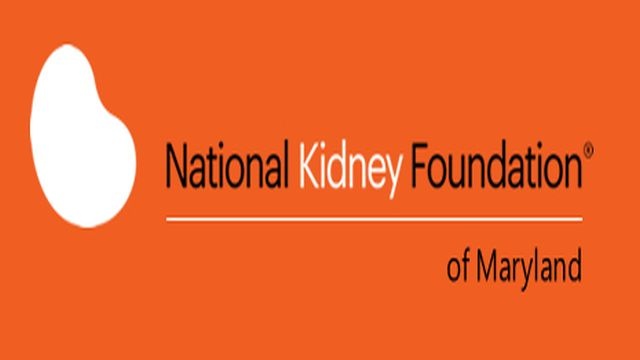Mar. 28 – Kidney Awareness

We wrap our kidney series with Nicole Scharf, Director of Field Services at the National Kidney Foundation of Maryland to sum up why kidney awareness is so important.
Why are Kidneys so Important to Good Health?
Kidneys are important because they keep the rest of your body’s systems in balance. They:
· Remove waste products from the body
· Balance the body’s fluids
· Help keep blood pressure under control
· Regulate hormones
· Keep bones healthy
· Balance minerals in the body
· Help make red blood cells
What is Kidney Disease?
· Your kidneys no longer function properly.
· A serious disease that can lead to heart and blood vessel problems, kidney failure, death.
· Kidney disease can be found and treated early.
· The earlier kidney disease is found, the earlier it can be treated so it doesn’t get worse.
· If it does get worse and kidneys fail, dialysis or a kidney transplant is needed to stay alive.
Who is at Risk?
You are at risk if you:
· Have diabetes. Diabetes is the leading cause of kidney failure.
· Have high blood pressure. Uncontrolled or poorly controlled high blood pressure is the second leading cause of kidney failure in the country.
· Have a family history of kidney failure, diabetes, or high blood pressure.
· Are African American, Hispanic, Asian, Pacific Islander, or American Indian.
· Are age 60 or older.
· Additional risk factors include kidney stones, smoking, obesity and cardiovascular disease.
How is Kidney Disease Detected?
· Blood pressure monitoring.
· A urine test called “ACR” (albumin-to-creatinine ratio). Checks for protein in the urine, which can be a sign of kidney disease.
· A blood test for creatinine (which is used to estimate your GFR – “glomerular filtration rate”). Your GFR number tells your healthcare professional how well your kidneys are filtering blood.
What are the Symptoms of Kidney Disease?
· Most people don’t know they have kidney disease until their kidneys fail. Kidney disease is often called a “silent killer” because it has no early recognizable symptoms.
· Warning signs may include: more frequent urination, particularly at night; puffiness around the eyes; swelling of the hands and feat; weakness and fatigue; nausea and vomiting; loss of appetite; dry, itchy skin; trouble sleeping; trouble concentrating.
· People with risk factors should get tested regularly for kidney disease.
How is Kidney Disease Treated?
· Careful control of diabetes and high blood pressure.
· Medications, diet and exercise can slow kidney disease and help it from getting worse.
· Sometimes, kidney disease progresses to kidney failure. When that happens, a persons needs treatment with dialysis or a kidney transplant to survive.
· There are two types of dialysis: hemodialysis and peritoneal dialysis.
· Kidney transplantation is the best treatment for kidney failure and has high success rates.
Dialysis
· In hemodialysis, waste products and extra fluid are removed from the blood by a dialysis machine.
· On average, hemodialysis takes four hours and is usually done 3-4 times per week at a dialysis center. It can also be done at home.
· In peritoneal dialysis, your blood is cleaned inside your body. It is done 7 days a week, you do it yourself, and it can be done continuously throughout the day or at night while sleeping.
Kidney Transplant
· The treatment choice that allows you to feel as close to the way you did before you had kidney disease.
· May come from a living donor or deceased donor.
· A kidney from a living donor may last longer than one from a deceased donor.
· If you don’t have a living donor, you’ll be put on a waiting list.
· When your kidneys fail, it may be possible to get a preemptive transplant to avoid dialysis or early transplant to reduce time on dialysis.
· The transplant operation usually takes about 3-5 hours. Most patients can leave the hospital in 2-5 days.
· Rejection episodes can happen, but they don’t mean you have to lose your transplanted kidney.
· Your doctor can refer you to a transplant center for evaluation.
How Can You Protect Your Kidneys?
· Live a healthy lifestyle: Eat less salt and fat, exercise, lose weight if you are overweight, don’t smoke.
· Control high blood pressure, if you have it.
· Control diabetes, if you have it.
· Avoid over-the-counter NSAID pain medicines.
· If you are at risk, get tested!


